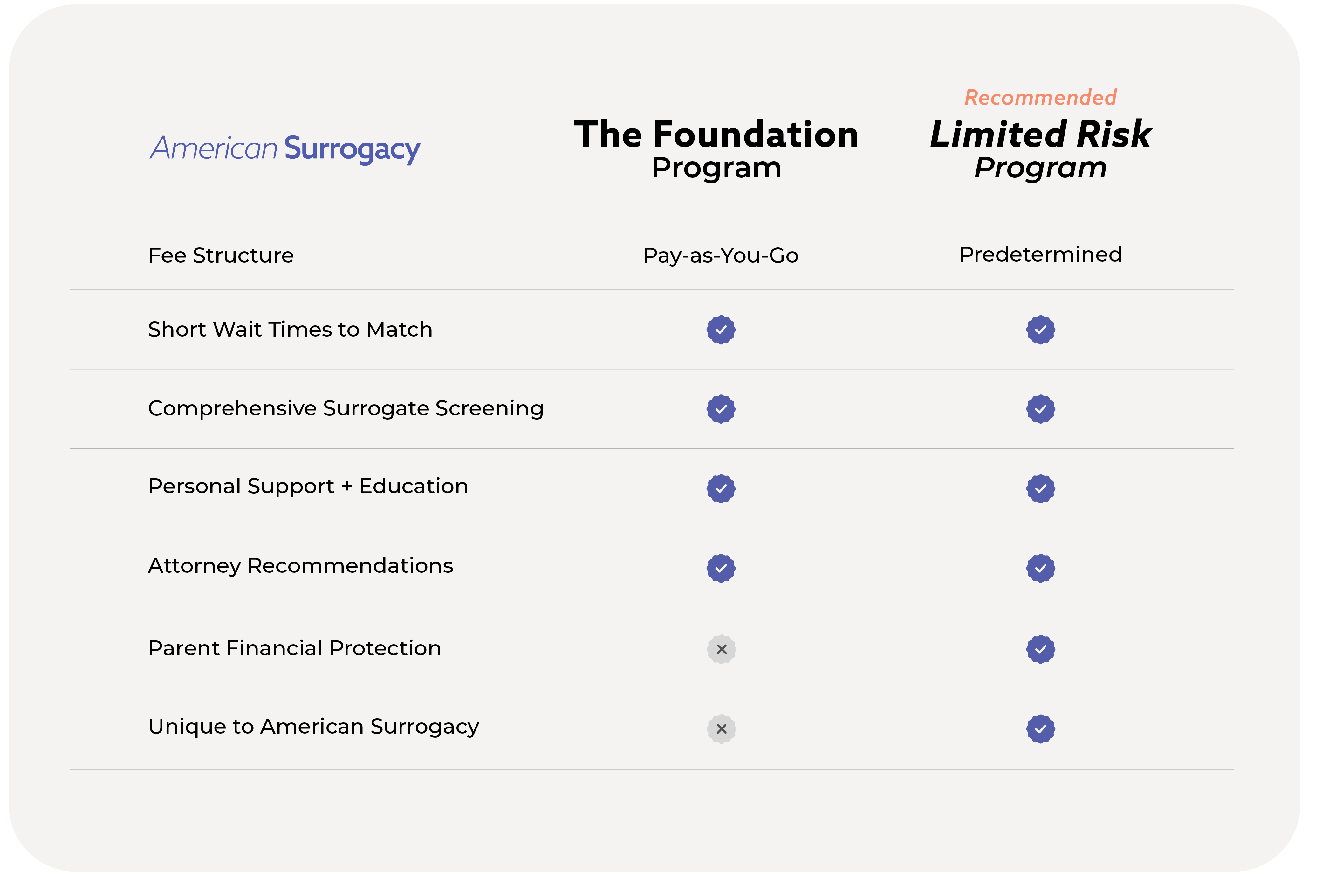If you are estimating the cost of surrogacy, understanding the cost of IVF and what insurance can cover can make a difference.
While some insurance plans may offer limited assistance for IVF treatments, coverage for the surrogacy process itself, including embryo transfers or surrogate medical expenses, may vary.
Understanding your insurance options can significantly impact your surrogacy budget and planning. Learn more about surrogacy insurance for intended parents.
Read on to learn more about the costs of IVF in surrogacy and what may be covered by insurance.
Does Insurance Cover IVF for Surrogacy?
Your child born through surrogacy IVF will likely be covered by your health insurance when he or she is born. Insurance may cover medical costs associated with IVF and pregnancy, but in some cases, surrogacy IVF and surrogate pregnancy may be excluded.
If insurance covers IVF and surrogate pregnancy, typically this coverage does not extend to additional costs like surrogate compensation, agency fees and legal fees.
How Can I Check My Coverage?
- Contact your insurance provider
- Review your policy (this can often be found with your online account)
- Our staff can help you review medical coverage when you contact us
Typical Costs of IVF and Surrogacy
Before we get into the details of how much insurance may be able to cover for surrogacy IVF, here is a breakdown of some of the typical costs in IVF:
- Base fees and consultations: $12,000-$14,000
- Medications: $3,000-$8,000 or more
- Mock embryo transfer: $240-$500
- Surrogate medical evaluation: $800-2,500
Some costs will be variable depending on your needs. Here are some estimates for things your family may or may not need:
- Donor sperm: $300-$1,600
- Donor eggs: $10,000-$15,000
- Intracytoplasmic sperm injection (ICSI): up to $2,000
- Embryo cryopreservation: $1,000-$2,000
- Embryo storage: $350-$500 per year
- Embryo transport: $1,000-$3,000
- Genetic testing: $1,800-$6,000 or more
- Frozen embryo transfer: up to $6,500
In surrogacy, you will have additional expenses like:
- Surrogate compensation
- Surrogate pregnancy expenses
- Agency fees
- Legal fees

Get a full surrogacy cost breakdown here.
What is the Cost of Surrogacy for Couples With Insurance?
The cost of surrogacy for couples with insurance can vary significantly based on several factors, including the specific insurance coverage, the surrogate's expenses and the complexity of the process. Here’s a breakdown:
- Surrogate Compensation: Surrogate compensation varies, depending on experience and the specific agreement.
- Medical Expenses: If your insurance covers fertility treatments and pregnancy-related costs, you may only need to pay the deductibles and co-pays.
- Legal Fees: Legal costs for drafting contracts and guidance.
- Agency Fees: If you work with a surrogacy agency, their fees can vary depending on the services provided.
- Insurance for the Surrogate: If the surrogate's insurance doesn’t cover the pregnancy, you may need to purchase a separate policy.
- Out-of-Pocket Costs: Even with insurance, you may incur out-of-pocket expenses like co-pays, medication costs and any uncovered services.
How Much is IVF with Insurance?
The cost of surrogacy for couples with insurance can be lower than the cost of IVF without insurance, but the difference will depend on your insurance.
Some insurance carriers may cover all or part of the IVF process as well as pregnancy, and some can even cover surrogacy expenses up to a certain amount. Other insurance providers will provide minimal or no coverage, so the cost may be similar whether you have insurance or not.
What is the Best IVF and Surrogacy Insurance?
If you know you want insurance that covers IVF and surrogacy, there are some fertility-specific insurance providers that are more likely to provide coverage for IVF and surrogacy. Look out for providers like WinFertility and Progyny that are focused on family-building.
Our surrogacy specialists can help you understand surrogacy costs and the services necessary for surrogacy when you fill out our simple form.